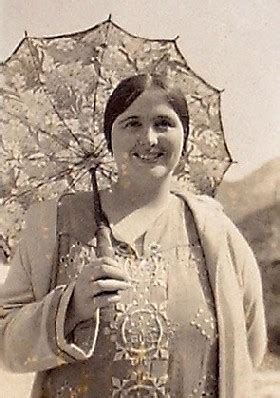Цитата Стори Масгрейва
Большая часть нашей истории в космосе была передана в терминах действий — что люди делают, хронологический список произошедших событий — в отличие от человеческого опыта совершения этих действий.
Связанные цитаты
Я хочу, чтобы мои работы стали частью нашей визуальной истории, вошли в нашу коллективную память и наше коллективное сознание. Я надеюсь, что это послужит нам напоминанием о том, что глубочайшие трагедии истории касаются не великих героев, приведших в движение события, а бесчисленных простых людей, захваченных этими событиями и разорванных на части их безжалостной яростью. Я был свидетелем, и эти фотографии — мое свидетельство. События, которые я записал, не должны быть забыты и не должны повторяться.
На протяжении всей нашей истории существовал длинный список тех, кого мы приучили ненавидеть. Британцы, французы, испанцы, немцы, японцы, русские, коммунисты, северные корейцы, вьетнамцы, иранцы, талибы, а также северяне и южане в Америке — вот некоторые из тех, кого в разное время призывали называть врагами и ненавидеть. . Список длинный, и по прошествии времени те, кого нам назначили ненавидеть, как нам позже сказали, должны быть удалены из нашего списка ненависти. Враг, очевидно, сама ненависть. Имейте сочувствие к назначенному врагу.
Одна из вещей, и самая захватывающая, на самом деле, определенно самая захватывающая, это иметь детей. Знаешь, раньше у меня не было детей. Я был женат всего за год до моей миссии на космическую станцию, поэтому иметь трехлетних детей — это совершенно новый опыт и новое приключение. Это может звучать забавно, потому что люди рожают детей каждый день, но рождение собственных детей, рождение моих собственных детей изменило мою жизнь так же, а может быть, и более фундаментально, чем даже полет в космос.
Я даже не знаю на уроках истории в американском образовании, сколько из Дня Д, Второй мировой войны, всего этого преподается, а сколько просто игнорируется или оглядывается с насмешкой, неискренностью или чем-то еще. Но это было одно из самых важных событий во всей истории человечества с точки зрения сохранения свободы и свободы, а также понятия демократии и всего, что с ней связано.
Историческая хронология, человеческая или геологическая, зависит... от сопоставимых безличных принципов. Если начертить пером на тарелочке из сырой глины две метки, а вторая пересечь первую, то другой человек, рассматривая эти метки, может однозначно сказать, какая сделана первой, а какая второй, ибо последнее событие необратимо нарушает предшествовавшее. В силу того, что большинство горных пород земли содержат отпечатки череды таких необратимых событий, становится возможной однозначная выработка хронологической последовательности этих событий.
В нашей Солнечной системе есть одна планета, пригодная для жизни, и это Земля, и космические путешествия могут изменить ситуацию здесь к лучшему. Прежде всего, просто заставив людей отправиться в космос и оглянуться на эту хрупкую планету, на которой мы живем. Люди вернулись преображенными и совершили фантастические вещи.
Я действительно думаю, что то, как мы структурируем вещи, во многом определяет наш опыт, и я разговаривал со многими онкологами, например, почему бы нам не назвать их наборами для трансформации и не дать людям трансформационный сок и не иметь руководств, которые поддерживают людей, когда они проходят химиотерапию, чтобы вы могли сжечь то, что нужно сжечь, в отличие от этого ужаса, ужаса, ужаса, который представляет собой совсем другой опыт.
Я искал жанр, наиболее адекватный моему видению мира, чтобы передать то, как мое ухо слышит и мои глаза видят жизнь. Я пробовал то и это и, наконец, выбрал жанр, в котором человеческие голоса говорят сами за себя. Но я не просто записываю сухую историю событий и фактов; Я пишу историю человеческих чувств.
Сейчас мы живем в особенное время. Никогда еще в истории не было такого массового разочарования в том, что касается опоры на руководящие функции. Большинство людей не хотят с этим мириться. Снова и снова доказывалось, что император не носит никакой одежды, но большинству людей не нравится смотреть на голых императоров. Обернувшись, чтобы отвести взгляд, они увидели дискотеки и еще кое-что и вцепились в них.
Ни один человек и ни одно поколение не имели достаточно личного опыта, чтобы игнорировать тот огромный опыт рода человеческого, который называется историей. Тем не менее, большинство наших школ и колледжей сегодня уделяют мало внимания истории. И многие из наших текущих политик повторяют ошибки, которые были сделаны снова и снова в прошлом с катастрофическими результатами.
































